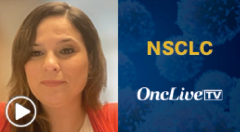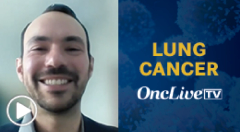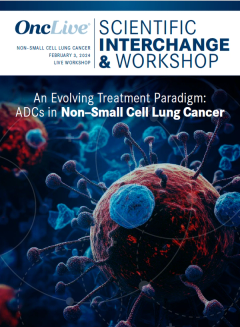
Dr Kareff on the Utility of ADCs in NSCLC
Samuel Kareff, MD, MPH, discusses the treatment of patients with non–small cell lung cancer.
Samuel Kareff, MD, MPH, chief fellow, Hematology/Oncology, University of Miami, Sylvester Comprehensive Cancer Center, Jackson Memorial Hospital, discusses key takeaways from an OncLive® workshop he participated in that focused on the treatment of patients with non–small cell lung cancer (NSCLC).
The workshop provided an insightful overview of both established and emerging antibody-drug conjugates (ADCs) within the realm of NSCLC, Kareff begins. One of the most notable aspects of such workshops is the opportunity they afford to delve into preliminary and early-phase data preceding larger phase 3 trials, he elucidates. This learning experience aids oncologists in grappling with the significance of ADCs, positioning this class of drugs as a pivotal component of future oncological approaches, he says. Furthermore, these types of workshops facilitate a comprehensive exploration of the identification of specific patient cohorts poised to benefit from these novel targeted therapies, an aspect laden with excitement, Kareff notes.
In this era characterized by precision oncology, the identification of new therapeutic targets holds a large amount of promise, furnishing both prognostic and predictive insights for distinct patient subgroups, Kareff relays. Although the focus remained primarily on NSCLC during the workshop, a plethora of agents targeting intriguing receptors, such as HER2, emerged, he expands. These agents are either currently employed in NSCLC, are under investigation in this disease, or boast commendable efficacy records in diseases beyond lung cancer, Kareff explains.
Moreover, witnessing the clinical development of these agents and discerning their promising signals in early-phase trials is profoundly encouraging, he continues. The observed success with ADCs thus far allows for speculation regarding their sustained efficacy in larger phase 3 trials, paving the way for continued advancements in NSCLC management, Kareff reports. Such insights underscore the intricate dynamic and nature of oncological research, and these developments have fueled optimism for improved treatment outcomes in NSCLC and beyond, he concludes.







































